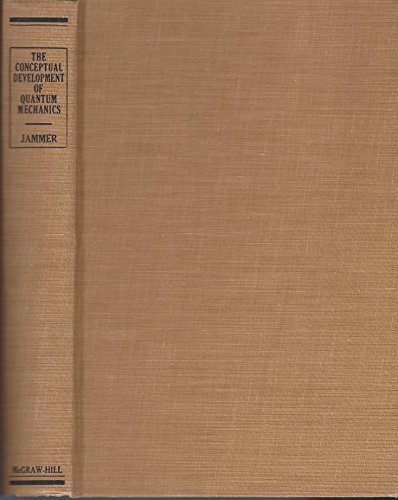The Conceptual Development of Quantum Mechanics book download
Par bivins james le dimanche, août 14 2016, 23:16 - Lien permanent
The Conceptual Development of Quantum Mechanics by Max. Jammer


The Conceptual Development of Quantum Mechanics Max. Jammer ebook
Page: 412
ISBN: 0070322759, 9780070322752
Publisher: MGH
Format: djvu
Early on I developed an expectation that you would explain and give examples of how randomness emerges from totally determined totality. In terms of physics, while Schrödinger's contribution to the development of quantum physics was pivotal, it ends up seeming like a bit of an aberration, with his late-career turn to dabbling in biology and Vedic philosophy looking a little more typical. Because if LHC confirms superstrings, Higgs boson, and Susy, this means that all the principles of Quantum Mechanics are correct, since those three theories were developed from the concepts of Quantum Mechanics. He was, however, renowned as an excellent Contemplating the infinite is a much nicer route than contemplating the tawdry, to get on the path of eagerly wrestling with difficult concepts. Now, the harsh lesson is: Abandon the random variable, then concepts like "I", "choose" and "exist" become entirely abstract. Quantum mechanics at its heart is the study of the building blocks of the universe – what they are and how they work together to form reality as we are able to interpret it. This essay will discuss some of the implications on quantum mechanics furthermore how this was developed by theorists for instance Planck theory on black body radiation, Einstein theory on the photoelectric effect and Bohr's atom model and many more. One of the difficulties with understanding the derivation of quantum mechanics (QM) from tautological modal realism [1] is that. It is also the basic variable of density Discussion includes the use of probabilities in statistical physics; the origins of quantum mechanics; the philosophical questions at the heart of quantum theory, like quantum entanglement; and methods for the experimental determination of electron density distributions. Barbour states that 'no sharp line can be drawn between the process of observation and what is observed thus conventional concepts inevitably enter our attempts to picture what is going on in atomic world'. Electron density is one of the fundamental concepts underlying modern chemistry and one of the key determinants of molecular structure and stability.